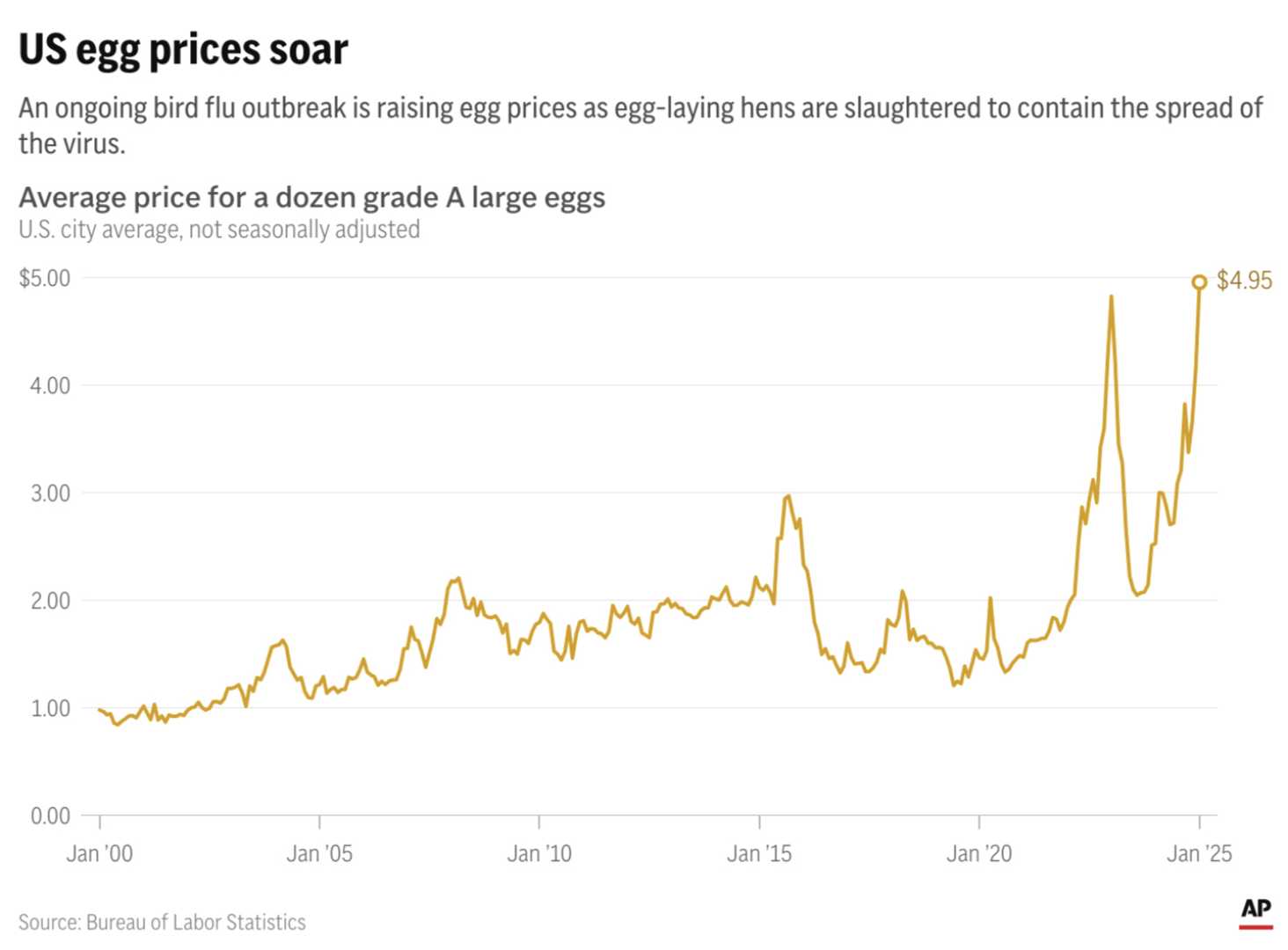Business
Record High Egg Prices Causing Concern Ahead of Mardi Gras

OMAHA, Neb. (AP) — The price of eggs reached a record high of $4.95 per dozen in January, according to the latest report from the U.S. Bureau of Labor Statistics. This significant increase reflects the ongoing impact of a bird flu outbreak that began in 2022, which has disrupted supply chains and driven prices beyond previous records.
This surge in egg prices has not gone unnoticed by consumers, bakers, and grocery store owners. The latest data showcases that prices have more than doubled compared to a low of $2.04 recorded in August 2023. The spike is reminiscent of price increases seen during the last major bird flu outbreak in 2015 and is attributed to soaring demand and supply challenges.
Jon Florey, a shopper at Encinal Market in Alameda, California, expressed his frustrations, saying, “We do use eggs a little less often now, you know, because of the price. I was going to make a quiche, and I figured I’d do something else instead.”
As the Mardi Gras season approaches, local bakers in places like New Orleans are starting to feel the pinch, as the demand for king cakes and other egg-based products surges. Bakers are faced with tough decisions on whether to increase prices or reduce production in response to higher costs. Some reports estimate that the price of a carton of eggs can exceed $10 in certain regions, particularly for organic and cage-free varieties.
The situation is compounded by limited availability in stores. Joe Trimble, owner of Encinal Market, noted that his shelves are only about 25% full due to supply issues with suppliers not fulfilling orders. “It’s something you don’t think about until you look at the shelf and it’s nearly empty,” Trimble said. “People want them when they’re shopping on a Saturday morning.”
According to the U.S. Department of Agriculture, more than 23 million birds were slaughtered last month to prevent the spread of bird flu, with more than 18 million killed in December. These figures primarily relate to egg-laying hens. The bird flu outbreak has had severe repercussions for the poultry industry, leading to extended periods where farms cannot produce eggs after an outbreak is identified.
The bird flu virus is most often spread by migratory wild birds. Although it mostly affects birds, it can also infect other species, and some humans have contracted the virus, primarily farm workers who have been exposed to sick animals. Nonetheless, health officials assure the public that eggs and poultry remain safe to eat as the U.S. maintains strict food safety measures. Proper cooking of eggs at temperatures above 165 degrees Fahrenheit is effective in neutralizing any potential viruses.
Compounding these challenges are rising costs in feed, labor, and transportation, further exacerbated by inflation. Producers have been forced to invest more in biosecurity measures to protect their flocks, while new regulations in ten states restrict egg sales to only cage-free products, further tightening supply.
CoBank analyst Brian Earnest stated that while the elevated price of eggs may deter some consumers, it may not significantly reduce overall demand. As Easter approaches, a traditional peak period for egg consumption, supermarkets are likely to continue facing challenges in stocking sufficient supplies.
With the demand for eggs growing—both from traditional consumers and an uptick in all-day breakfast restaurants—U.S. Department of Agriculture officials anticipate egg prices could increase by as much as 20% through this year.












